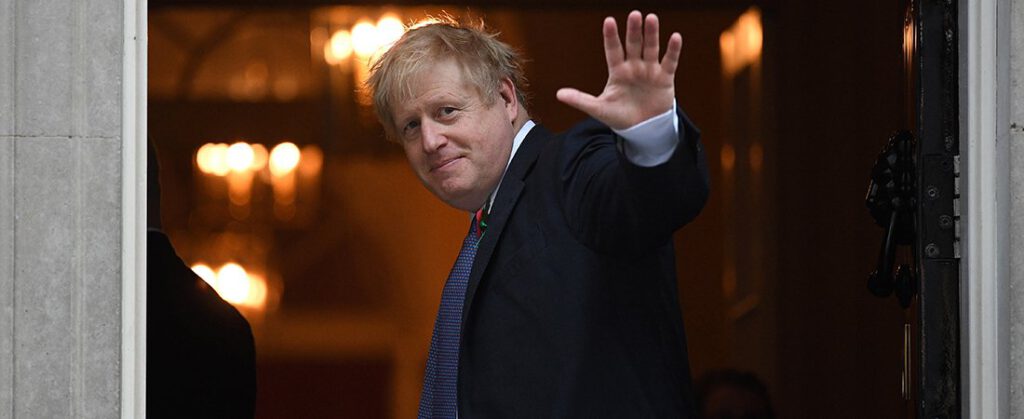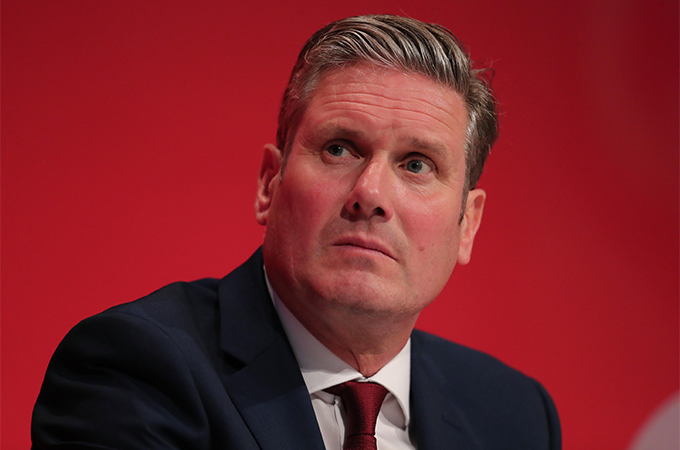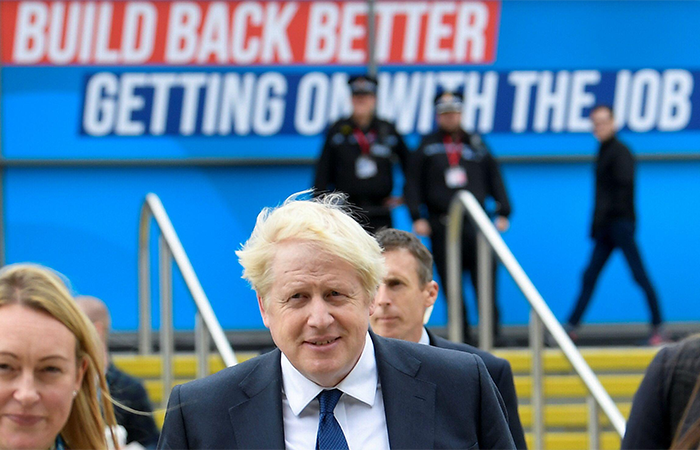The mood in a wet Liverpool is a mixture of excitement and anxiety, a bit like the first term at a new school.
For staffers who have been plunged straight into government – and for those left out – it’s the first big reunion since the election.
New ministers and special advisers are comparing notes on their first weeks working in departments, dealing with thousands of officials, huge responsibilities and nightly red boxes. The step up from Opposition is exhilarating and daunting in equal measure.
There are celebrations of July’s historic win, congratulations between winners who are still getting to know one another, and commiserations for those who missed out.
The rocky press in the run-up to conference has caused some jitters, particularly among younger staffers for whom this is their first experience of government. The question people are asking is whether these are just bumps on the road, or revealing of deeper weaknesses.
Older hands tend to be more phlegmatic. Every new government has teething trouble. Those with longer memories recall worse dramas afflicting Blair and Cameron in their early days – never mind the chaos of the Boris Johnson or (whisper it here) Gordon Brown at this stage of their governments. Liz Truss of course didn’t even make it this far.
Intrigue about the PM’s court is always catnip to political journalists. Some of the coverage has caused more mirth than alarm. Yesterday’s Sunday Times reported that Sue Gray is “controlling access to the PM’s diary and the papers which go into his red box”. It would be a more disturbing revelation if the PM’s Chief of Staff were NOT doing exactly that, since it is literally her job description.
More seriously, it’s clear there have been some mis-steps. It’s also evident from some of the briefing that new Spads are bruised about the hairshirt approach to their salaries. Labour governments always tend to self-flagellate about this kind of thing, while a succession of Tory PMs have shown few qualms in dishing out jobs, honours and peerages to everyone from friends and family to the interns.
In these early days there is still plenty of scope to identify gaps and weaknesses, and to bolster the team around the PM where needed.
There is impatience to see the changing of the No10 guard completed. It’s an open secret that Cabinet Secretary Simon Case will soon move on. His unusual appointment is a legacy of Dominic Cummings’ “hard rain” on the Civil Service. It’s been a poisoned chalice for him, and is still contributing to dysfunction in Whitehall. He has done a loyal job helping the new PM find his feet, but many feel the new team cannot afford a protracted delay in choosing his replacement. This is part of the transition which needs to be finished before the new team can bed down.
Olly Robbins is always mentioned as the front runner for the job, though the reason has more to do with his skills than his supposed (often over-stated) closeness to Sue Gray. Unwillingly famous for the grim job of leading the Brexit negotiations, it’s sometimes forgotten that he was at the heart of Downing Street under no fewer than four Prime Ministers – in the days when this meant more than outlasting a lettuce. He built his career in the public spending function of the Treasury, and was deeply involved in public service reform under Blair, as well as having national security experience. That is why many who have worked with him think Cabinet Secretary is the job he was put on earth to do.
A wider reshuffle of top Whitehall jobs is likely to follow, and there is always room for Starmer to add to other parts of his team if he feels the need. Few people say no to a call from the PM.
On the question of the political mood and narrative, there is a lot of talk about whether Starmer has been too glum about the challenges Britain faces, and whether he needs to show more optimism.
Johnsonian jingoism – banging the drum about the Britain beating the world and Brexit being a roaring success – is not an option for a Labour government. Tory-supporting newspapers were happy to parrot fanciful boasts from a succession of Conservative leaders. Even Liz Truss was first greeted with coverage worthy of North Korea. No such generosity will be extended to Labour, with these papers seeing themselves as the effective Opposition while the Conservatives are in turmoil.
Against that backdrop, when the reality is as daunting as it is, don’t be surprised to see the Labour message remain cautious. No doubt Starmer will try to describe a sunnier destination for Britain when he takes the stage tomorrow, but he will also remain honest that the journey will be tough.
On that note, perhaps the most substantial speech to watch will be Rachel Reeves today. All eyes will be on her for clues to the coming budget.
While the choices she will address are tough, at least they may get people talking about more meaty issues than recent days.
Finally, one lesson for Labour’s team to draw from the enthusiastic embrace of these stories by the anti-Labour press is not to succumb to the temptation to help them attack your own government. There will be plenty of incoming fire without this sort of blue on blue. The last Labour government should be a cautionary tale on that front.





